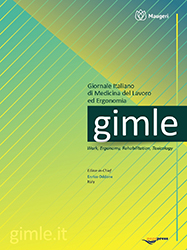Music listening for people living with dementia: a systematic review
All claims expressed in this article are solely those of the authors and do not necessarily represent those of their affiliated organizations, or those of the publisher, the editors and the reviewers. Any product that may be evaluated in this article or claim that may be made by its manufacturer is not guaranteed or endorsed by the publisher.
Authors
Introduction. This review aimed at exploring how music listening-based approach can be effective on physiological, cognitive and behavioural aspects, with specific reference to the domain of dementias. Music listening can be considered one of the most common approaches in dementia care, frequently in combination with other non-pharmacological treatments. This type of intervention may allow persons with dementia to work on the organization and regulation of their emotions thanks to the mediation of the sonorous-musical element.
Methods. Two independent researchers performed literature search by consulting the PUBMED database and the Cochrane Register of randomized controlled trials (articles written in English and published from January 1% 2000 to February 28th 2022 were considered as eligible).
Results. Twelve articles met the inclusion criteria and were included in this review. The selected studies highlighted some effects of music listening in people with moderate to severe dementia. Assuming a clinical point of view, the results showed how music listening intervention could bring benefits on the behavioural and psychological symptoms of dementia, also if not always statistically significant.
Discussion/Conclusion. The study focused on the need to define clear criteria of music listening programs selection and administration, but also on the involvement of trained music therapists in planning and managing the music listening-based interventions. Music listening interventions should be developed by implementing evidence-based practice and integrating research in the field. The identification of specific musical elements connected with the therapeutic outcome is a key point for the music therapy future.
How to Cite

This work is licensed under a Creative Commons Attribution-NonCommercial 4.0 International License.
PAGEPress has chosen to apply the Creative Commons Attribution NonCommercial 4.0 International License (CC BY-NC 4.0) to all manuscripts to be published.






